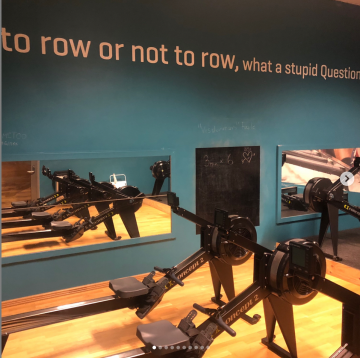Astill
Multi-generational rowing team!
The name Asketil was more common before 1200, being gradually replaced by the shorter form Astel. In the 1500's the name was spelt in a variety of ways Astle, Astel, Astell, Astill, Astyll, Astull, etc.
Asketil was a Danish name, derived from 'Aes' a god of Odin's tribe, and 'Ketil' describing either a
(i) Cooking pot, (ii) Cauldron, (iii) Sacrificial kettle for blood, or (iv) Viking Warrior leather helmet.
References to Asketil have been found in 12th century surveys by the Monks of Burton Abbey. In 874 the Mercian capital Repton (near Burton) was sacked by an army of Danes who had sailed up the river Trent, led by four kings one of which was called Asketil.
Subsequently these Danish kings were allocated lands in a partitioned Mercia corresponding to the later shires of Lincoln, Nottingham, Derby and Leicester.
Hereward the Wake, the guerrilla leader who fought William the Conqueror for five years from 1066, was the son of a prominent Anglo-Danish magnate called Asketil. (1066: A New History of the Norman Conquest, Peter Rex).
Among the immigrants who arrived in NSW, Australia aboard the ship Agenoria in May 1849 was Thomas Astill, age 42, Leicestershire.
The well-known Scandinavian name, Asketil, is also found on the remains of a runic inscription ( ᚫᚴᛂᛐᛁᛚ ) in the museum in Douglas (“p. Askitil vilti i trigu——aithsaara siin;” i. e., whom Asketil deceived in security, contrary to his pledge of peace).
Rus' is derived from an Old Norse term for "the men who row" (rods-).
“I have seen the Rus as they came on their merchant journeys and encamped by the Itil. I have never seen more perfect physical specimens, tall as date palms, blond and ruddy; they wear neither tunics nor caftans, but the men wear a garment which covers one side of the body and leaves a hand free. Each man has an axe, a sword, and a knife, and keeps each by him at all times. The swords are broad and grooved, of Frankish sort.”
(traveller Ahmad ibn Fadlan - delegation sent by Caliph al-Muqtadir in 921 on route to the Bulgar capital, passing east of the Caspian Sea. Quote from ‘Ibn Fadlan And The Land Of Darkness‘).
This account inspired author Michael Crichton's 1976 novel Eaters of the Dead, the basis of the film The Thirteenth Warrior.
(Team photo: Norway 2018 Universitetet i Bergen gym, while on exchange)
| Athlete | Age | Location | Country |
|---|---|---|---|
| Caspian Astill | 29 | AUS | |
| Chris Astill | 48 | NSW | AUS |
| Frank Astill | 76 | NSW | AUS |
| Jasmine Dingley | 32 | Sydney, NSW | AUS |
| Toby Astill | 25 | AUS |
